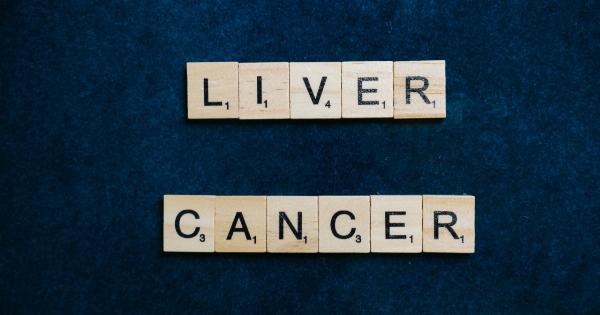The liver is one of the most important organs in our body. It is responsible for detoxifying harmful substances, producing bile, and storing vitamins and minerals. But the liver can also be affected by a variety of diseases, including liver cancer.
One of the major risk factors for liver cancer is excessive alcohol consumption. In this article, we will explore the dangerous connection between drinking and liver cancer.
What is Liver Cancer?
Liver cancer is a type of cancer that originates in the liver. It can be of two types: primary liver cancer, which originates in the liver itself, and secondary liver cancer, which spreads from other parts of the body to the liver.
The most common type of primary liver cancer is hepatocellular carcinoma (HCC), which accounts for about 75% of cases.
How Does Drinking Cause Liver Cancer?
Excessive alcohol consumption is a major risk factor for liver cancer. When we drink alcohol, it is metabolized by our liver. This process generates toxic byproducts, such as acetaldehyde, which can damage liver cells and lead to inflammation.
Over time, this inflammation can cause scarring of the liver, a condition called cirrhosis.
Cirrhosis is a serious and irreversible condition that can increase the risk of liver cancer. In fact, people with cirrhosis are at least 30 times more likely to develop liver cancer than people without cirrhosis.
The exact mechanism by which cirrhosis leads to liver cancer is not fully understood. One theory is that the liver cells become stressed and damaged due to the cirrhosis, and in an attempt to regenerate, they undergo genetic changes that can eventually lead to cancer.
How Much is Too Much?
The link between alcohol consumption and liver cancer is dose-dependent, which means that the more you drink, the higher your risk of developing liver cancer. There is no safe level of alcohol consumption when it comes to liver cancer.
However, the risk increases significantly when you drink more than the recommended limits.
According to the World Health Organization (WHO), the recommended limits for alcohol consumption are:.
- Up to 1 standard drink per day for women
- Up to 2 standard drinks per day for men
A standard drink is defined as:.
- 12 ounces of beer
- 5 ounces of wine
- 1.5 ounces of distilled spirits
Other Risk Factors for Liver Cancer
While excessive alcohol consumption is a major risk factor for liver cancer, it is not the only one. Other risk factors include:.
- Hepatitis B and C infections: These are viral infections that can cause liver inflammation and eventually lead to cirrhosis and liver cancer.
- Non-alcoholic fatty liver disease: This is a condition in which fat accumulates in the liver, causing inflammation and scarring.
- Obesity: Being overweight or obese can increase the risk of liver cancer, as well as other types of cancer.
- Family history of liver cancer: People with a family history of liver cancer are more likely to develop the disease themselves.
Prevention and Treatment
The best way to prevent liver cancer is to adopt a healthy lifestyle. This includes:.
- Limiting alcohol consumption to within the recommended limits.
- Avoiding exposure to hepatitis B and C viruses by getting vaccinated or practicing safe sex and avoiding sharing needles.
- Maintaining a healthy weight through a balanced diet and regular exercise.
If you have been diagnosed with liver cancer, your treatment options will depend on the stage of the cancer and your overall health. Treatment options include surgery, radiation therapy, chemotherapy, and targeted therapy.
Your doctor will work with you to determine the best course of action for your individual situation.
Conclusion
Drinking and liver cancer have a dangerous connection. Excessive alcohol consumption can lead to cirrhosis, which significantly increases the risk of liver cancer.
There is no safe level of alcohol consumption when it comes to liver cancer, so it is important to limit your alcohol intake and adopt a healthy lifestyle. If you have been diagnosed with liver cancer, there are treatment options available, but early detection is key.
By taking steps to prevent liver cancer and seeking prompt medical attention if you develop symptoms, you can improve your chances of a positive outcome.





























